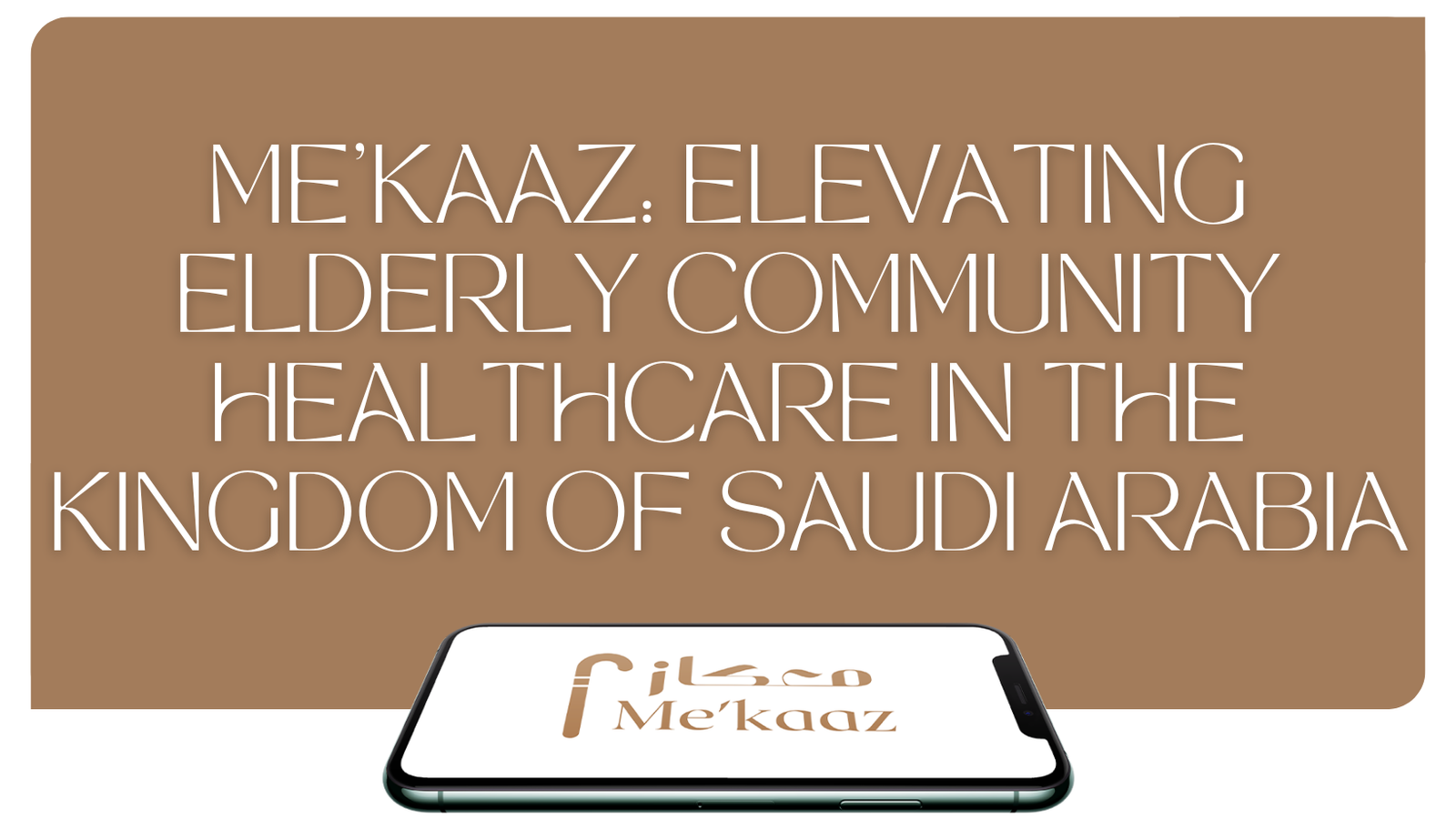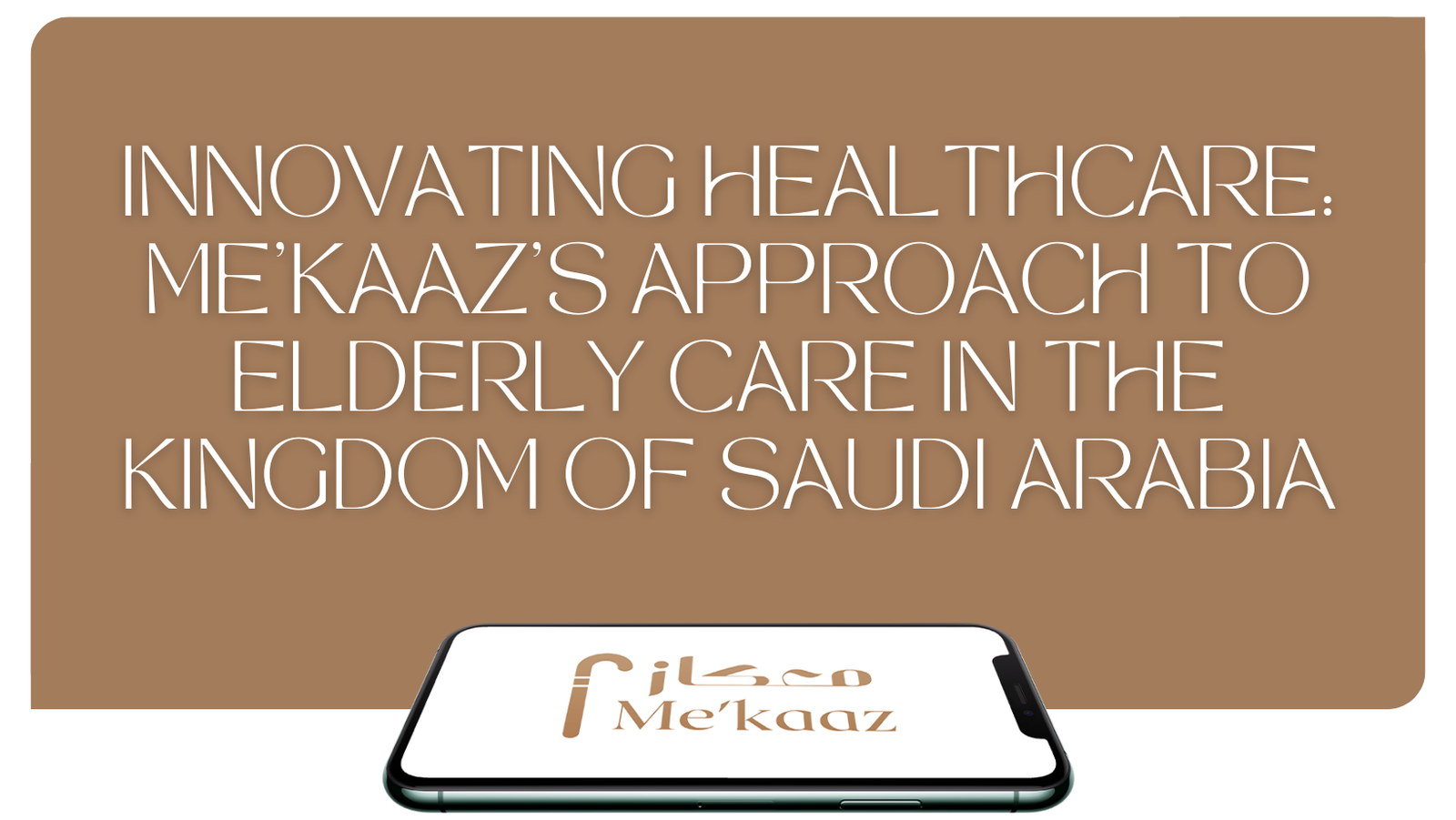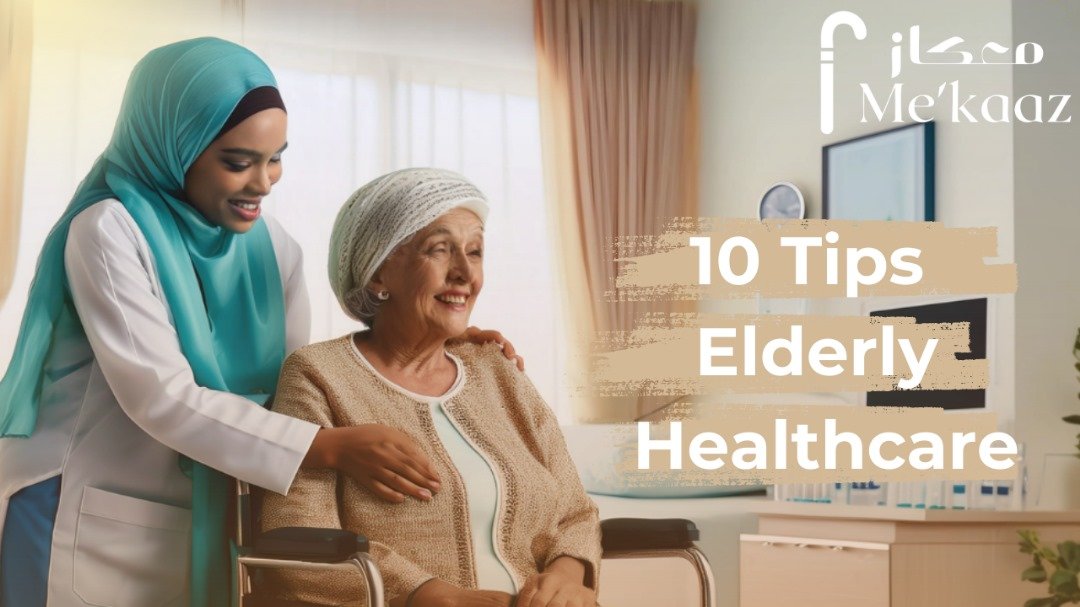Introducing a groundbreaking approach to senior care, where technology meets compassion. In this article, we explore the future of health tracking solutions designed specifically for the elderly. With an increasingly aging population, it has become paramount to revolutionize the way we monitor and manage the health of our loved ones.
Imagine a world where smart sensors seamlessly track vital signs, activity levels, and even social interactions, providing valuable insights to caregivers and healthcare professionals. These innovative solutions not only ensure the well-being of senior citizens but also offer peace of mind to their families.
Our brand voice is characterized by a sincere and empathetic tone. We understand the challenges faced by the elderly and their caregivers, and our mission is to bridge the gap between technology and human connection. Through this article, we aim to shed light on the advancements in health tracking for the elderly, showcasing the potential to enhance their quality of life.
Join us as we delve into the future of senior care, where cutting-edge health tracking solutions pave the way for healthier, happier, and more independent lives.
Current challenges in senior care
The landscape of senior care is complex and multifaceted, encompassing a range of challenges that can hinder the optimal well-being of the elderly. One of the most pressing issues is the lack of personalized care, which often results from the high caregiver-to-resident ratios in various facilities. Many caregivers are overwhelmed and unable to provide individualized attention, leading to missed health changes or emotional support needs. This scenario leaves seniors feeling isolated and less valued during a critical phase of their lives, emphasizing the urgent need for innovative solutions.
Another significant challenge is the communication gap between seniors, their families, and healthcare professionals. Elderly individuals may struggle to articulate their health concerns or may forget to report symptoms, leading to delayed diagnoses and treatment. Families often find it difficult to monitor their loved ones’ health when they cannot be present. This lack of transparency can foster anxiety among families, who may feel helpless or out of touch with their loved ones’ health status. Addressing this communication barrier is essential to fostering a supportive environment that encourages proactive health management.
Moreover, many seniors face mobility and cognitive challenges that complicate their ability to engage with traditional healthcare systems. Transportation issues can prevent them from attending regular check-ups or following treatment plans, resulting in deteriorating health conditions. The physical and mental barriers can create a vicious cycle where the inability to access care leads to increased health risks, further isolating seniors from the support they need. Tackling these challenges is crucial for improving the quality of senior care and ensuring that elderly individuals receive the compassionate attention they deserve.
To address these pressing issues, our NEDA and SANAD bands offer innovative solutions that can revolutionize the way seniors manage their health and well-being. These advanced wearable devices provide real-time monitoring, personalized care coordination, and seamless communication between seniors, their families, and healthcare providers. By empowering seniors with the tools they need to proactively manage their health, we can foster a more inclusive and supportive care environment that enhances their quality of life.
Contact us today to learn more about how our NEDA and SANAD bands can transform senior care in Saudi Arabia, aligning with the Vision 2030 framework and its commitment to improving healthcare for the elderly population
The importance of health tracking for the elderly
Health tracking plays a pivotal role in enhancing the quality of care for the elderly, as it allows for real-time monitoring of vital signs and overall health status. By utilizing health tracking solutions, caregivers can gain immediate insights into the well-being of their loved ones, leading to timely interventions when necessary. This proactive approach not only helps in managing chronic conditions but also reduces hospitalizations and emergency visits, which can be particularly stressful for seniors. Regular monitoring fosters a sense of security and allows for a more tailored care plan that meets the unique needs of each individual.
Additionally, health tracking promotes greater independence among seniors. With the ability to monitor their health remotely, elderly individuals can feel empowered to take control of their well-being. They can engage in self-management practices, such as tracking their medication adherence or physical activity levels, which contributes to improved health outcomes. This independence is crucial for maintaining dignity and self-esteem, allowing seniors to live more fulfilling lives while still receiving the necessary support from caregivers and healthcare professionals.
Moreover, health tracking fosters better communication between seniors, their families, and healthcare providers. With accessible data at hand, family members can stay informed about changes in their loved ones’ health, enabling them to make more informed decisions regarding care. This collaborative approach not only eases the burden on caregivers but also strengthens the bond between seniors and their families. As health tracking technologies continue to evolve, the potential to enhance communication and connection within the healthcare ecosystem becomes increasingly significant.
Trends and advancements in health tracking technology
The realm of health tracking technology is rapidly evolving, driven by the increasing demand for efficient and user-friendly solutions tailored for seniors. One prominent trend is the integration of artificial intelligence (AI) into health monitoring systems, which allows for more accurate data analysis and personalized care recommendations. AI-driven platforms can detect patterns in health data, alerting caregivers to potential issues before they escalate. This trend not only enhances the reliability of health tracking but also provides a more proactive approach to managing the health of elderly individuals.
Another significant advancement is the development of smart home technology that can monitor seniors’ daily activities and vital signs in a non-intrusive manner. Devices such as smart speakers equipped with health monitoring capabilities can track activity levels, medication schedules, and even detect falls. These solutions ensure that seniors can maintain their independence while providing peace of mind for both them and their families. The seamless integration of health tracking into daily life helps create an environment where seniors feel safe and supported.
Furthermore, there is a growing emphasis on user-friendly designs that cater to the specific needs of the elderly population. Many technology companies are prioritizing accessibility, ensuring that devices and applications are easy to use for seniors who may not be tech-savvy. This includes larger screens, simplified interfaces, and voice-activated features, making it easier for elderly individuals to engage with health tracking solutions. As these trends continue to shape the future of senior care, the focus remains on creating a harmonious blend of technology and compassion that enhances the quality of life for seniors.
The NEDA and SANAD bands from our company are excellent examples of these advancements in health tracking technology. These innovative wearable devices leverage AI, smart home integration, and user-friendly design to provide comprehensive health monitoring and management solutions for the elderly population in Saudi Arabia.
Wearable devices for health monitoring
Wearable devices have emerged as a transformative tool in the realm of health monitoring for the elderly, offering a convenient and effective way to track vital signs and daily activities. Smartwatches and fitness trackers equipped with heart rate monitors, step counters, and sleep tracking capabilities are becoming increasingly popular among seniors. These devices enable users to monitor their physical health in real-time, providing valuable insights that can help them make informed decisions about their well-being. The ability to track personal health data encourages seniors to adopt healthier lifestyles and stay active.
Moreover, many wearable devices now come equipped with fall detection features, which are particularly crucial for the elderly population. In the event of a fall, these devices can automatically alert caregivers or emergency services, ensuring a prompt response. This feature not only enhances the safety of seniors but also provides peace of mind for their families. Knowing that help is just a button press away allows elderly individuals to feel more secure in their independence, empowering them to engage in daily activities without fear.
The integration of advanced technology into wearable devices is also paving the way for continuous health monitoring. Many products now offer features such as blood pressure monitoring, blood oxygen level tracking, and even ECG readings. This continuous stream of data allows healthcare providers to identify potential health issues early on, facilitating timely interventions and reducing the risk of complications. As wearable technology continues to advance, the potential for improving health outcomes for seniors becomes increasingly promising, reinforcing the importance of adopting these innovations in senior care.
Mobile applications for health tracking
Mobile applications have revolutionized the way seniors and their caregivers approach health management, providing a user-friendly platform for tracking health metrics and accessing vital information. These apps often feature customizable dashboards that allow users to monitor various aspects of their health, including medication schedules, appointment reminders, and exercise routines. The convenience of having all this information at their fingertips empowers seniors to take an active role in managing their health, fostering a sense of ownership and responsibility.
In addition to tracking health data, many mobile applications offer educational resources and support networks for seniors. Users can access articles, videos, and expert advice on managing chronic conditions, nutrition, and mental health. This wealth of information can be invaluable, as it encourages seniors to stay informed and engaged with their health. Furthermore, some applications incorporate community features that connect users with others facing similar challenges, fostering social interaction and reducing feelings of isolation.
Another significant benefit of mobile health tracking applications is their ability to facilitate communication between seniors, their families, and healthcare providers. Many apps allow users to share their health data directly with caregivers or medical professionals, ensuring that everyone involved in their care is on the same page. This transparency can lead to more coordinated care plans and better health outcomes. As mobile technology continues to evolve, the potential for these applications to enhance the quality of life for seniors only grows, highlighting the need for their widespread adoption in senior care.
Remote monitoring solutions for seniors
Remote monitoring solutions have emerged as a game-changer in senior care, enabling caregivers and healthcare professionals to keep a close eye on the health of elderly individuals from a distance. These solutions often utilize a combination of wearable devices, smart home technology, and mobile applications to collect and transmit health data in real time. This continuous monitoring allows for timely interventions when health issues arise, significantly improving the quality of care provided to seniors. By minimizing the need for frequent in-person visits, remote monitoring solutions can also ease the burden on both seniors and their families.
One of the primary advantages of remote monitoring is the ability to track vital signs and health metrics without disrupting seniors’ daily lives. For example, smart sensors can be placed around the home to monitor activity levels, detect falls, and even assess sleep patterns. This unobtrusive approach ensures that seniors can maintain their independence while still receiving the support they need. Caregivers can receive alerts and reports about any concerning changes, allowing them to respond promptly and adjust care plans as necessary.
Moreover, remote monitoring solutions often come with integrated communication features that facilitate interaction between seniors and their caregivers or healthcare providers. Many platforms allow for video conferencing, enabling healthcare professionals to conduct virtual check-ups and consultations. This not only saves time but also reduces the stress associated with traveling to appointments, particularly for seniors with mobility challenges. As remote monitoring technology continues to advance, it holds immense potential to transform senior care, making it more efficient, effective, and compassionate .
Our NEDA and SANAD wearable devices are designed to seamlessly integrate with remote monitoring solutions, providing a comprehensive approach to elderly healthcare management. These advanced devices leverage the power of AI, smart home integration, and user-friendly interfaces to empower seniors, their families, and healthcare providers to collaborate in maintaining optimal health and well-being
Benefits of health tracking solutions for the elderly
The implementation of health tracking solutions for the elderly offers numerous benefits that extend beyond mere monitoring of vital signs. One of the most significant advantages is the potential for early detection of health problems. By continuously tracking health metrics, caregivers and healthcare providers can identify concerning trends before they escalate into serious issues. This proactive approach to health management can lead to timely interventions, reducing the risk of complications and hospitalizations, ultimately enhancing the overall quality of life for seniors.
Another critical benefit of health tracking solutions is the empowerment of seniors to take charge of their health. Many health tracking devices and applications are designed to be user-friendly, allowing elderly individuals to engage with their health data actively. This engagement fosters a greater understanding of their health conditions and encourages them to adopt healthier habits, such as regular exercise and medication adherence. With the ability to set personal goals and track progress, seniors can experience a renewed sense of agency in their lives, which is essential for maintaining dignity and self-esteem.
Furthermore, health tracking solutions can significantly improve communication and collaboration among caregivers, family members, and healthcare professionals. By sharing health data and insights, all parties involved can work together to create comprehensive care plans tailored to the needs of the elderly individual. This collaborative approach not only enhances the effectiveness of care but also provides families with peace of mind, knowing that they are actively involved in their loved ones’ health management. As health tracking technologies continue to evolve, their potential to improve the quality of life for seniors remains a top priority.
Implementing health tracking solutions in senior care facilities
The successful implementation of health tracking solutions in senior care facilities requires careful planning and consideration of various factors. First and foremost, it is essential to assess the specific needs of the residents and tailor the solutions accordingly. Each facility may have different challenges and goals, so a one-size-fits-all approach is inadequate. Engaging with residents, families, and staff to gather input can help identify the most suitable technologies and ensure that the solutions adopted genuinely enhance the quality of care.
Training and education are also crucial components of implementing health tracking solutions. Staff members must be adequately trained to use the technology effectively and interpret the data collected. This includes understanding how to respond to alerts, integrate health data into care plans, and communicate findings with residents and their families. Investing in regular training sessions and ongoing support can help foster a culture of innovation and ensure that staff members feel confident in using these tools to benefit their residents.
Additionally, it is important to consider the privacy and security of the health data collected through tracking solutions. Senior care facilities must implement robust data protection measures to ensure that residents’ information remains confidential and secure. Establishing clear policies regarding data access and sharing can help build trust among residents and their families, reassuring them that their personal health information is being handled responsibly. By prioritizing these aspects, senior care facilities can create an environment where health tracking solutions thrive, ultimately leading to improved outcomes for the elderly.
Conclusion: The future of health tracking solutions for the elderly
The future of health tracking solutions for the elderly in Saudi Arabia is extremely promising, with advancements in technology poised to revolutionize the way we approach senior care. As Saudi Arabia’s Vision 2030 framework emphasizes the importance of addressing the unique challenges faced by the elderly population, innovative solutions will play a pivotal role in enhancing their quality of life.
By integrating health tracking technology, such as the NEDA and SANAD wearable devices, into everyday care, we can empower seniors to take charge of their health while providing caregivers with the tools they need to deliver personalized and effective support. These solutions leverage the power of artificial intelligence, smart home integration, and user-friendly interfaces to create a holistic healthcare ecosystem for the elderly.
Moreover, the continued collaboration between healthcare providers, technology developers, and families will be essential in shaping the future of senior care in Saudi Arabia. By fostering an open dialogue and sharing insights, stakeholders can work together to create solutions that truly meet the needs of the elderly, ensuring that health tracking solutions are not only effective but also compassionate and respectful of the autonomy of seniors.
As we embrace the potential of health tracking solutions, we must remain committed to the core values of empathy and connection. By leveraging technology to enhance communication and care, we can create a future where elderly individuals feel valued, supported, and empowered to live healthy, fulfilling lives. The integration of health tracking solutions in senior care is not just about monitoring health; it is about nurturing relationships, promoting independence, and ultimately fostering a society where every elderly person can thrive.





